Mohamed Nasr
Can a Multichoice Dataset be Repurposed for Extractive Question Answering?
Apr 26, 2024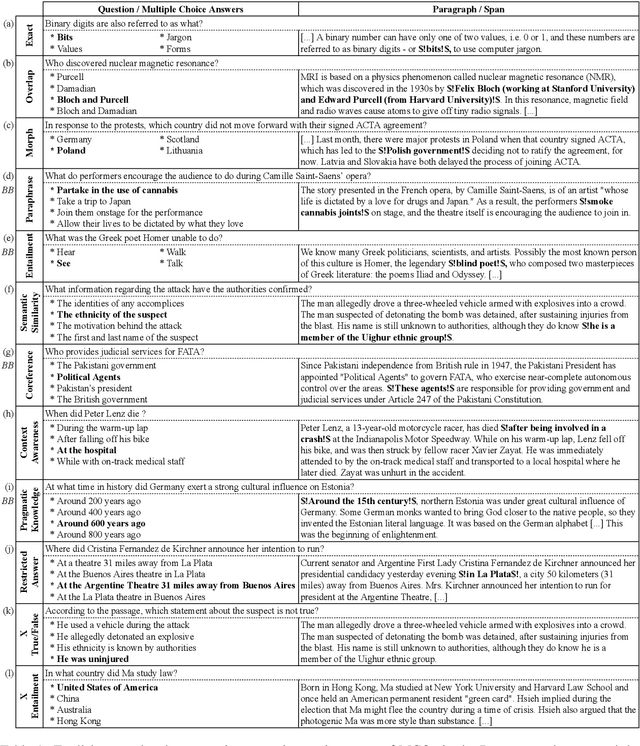

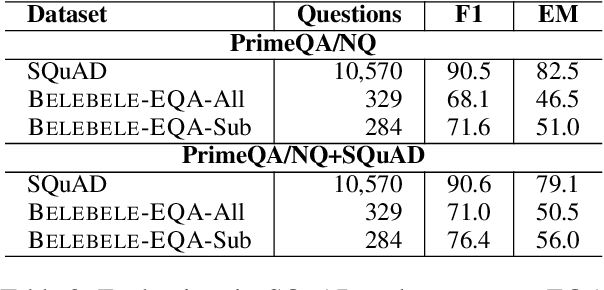
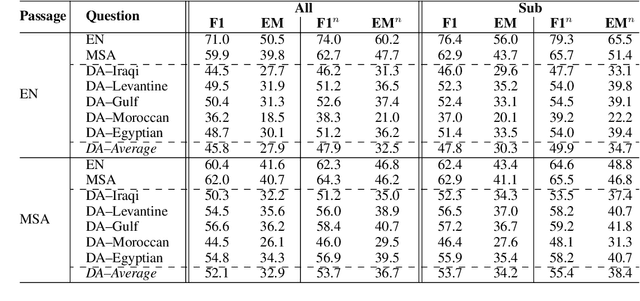
Abstract:The rapid evolution of Natural Language Processing (NLP) has favored major languages such as English, leaving a significant gap for many others due to limited resources. This is especially evident in the context of data annotation, a task whose importance cannot be underestimated, but which is time-consuming and costly. Thus, any dataset for resource-poor languages is precious, in particular when it is task-specific. Here, we explore the feasibility of repurposing existing datasets for a new NLP task: we repurposed the Belebele dataset (Bandarkar et al., 2023), which was designed for multiple-choice question answering (MCQA), to enable extractive QA (EQA) in the style of machine reading comprehension. We present annotation guidelines and a parallel EQA dataset for English and Modern Standard Arabic (MSA). We also present QA evaluation results for several monolingual and cross-lingual QA pairs including English, MSA, and five Arabic dialects. Our aim is to enable others to adapt our approach for the 120+ other language variants in Belebele, many of which are deemed under-resourced. We also conduct a thorough analysis and share our insights from the process, which we hope will contribute to a deeper understanding of the challenges and the opportunities associated with task reformulation in NLP research.
SoccerNet 2023 Challenges Results
Sep 12, 2023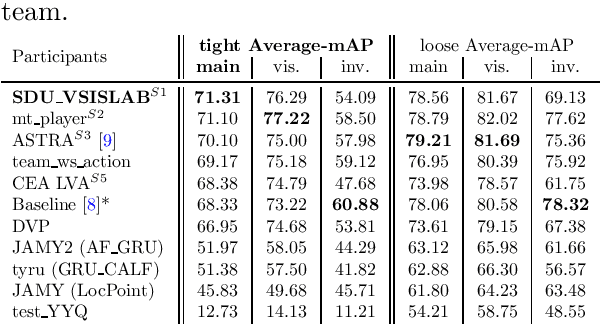


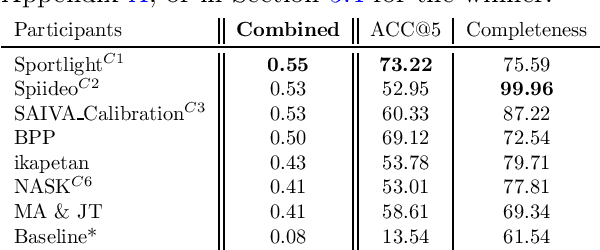
Abstract:The SoccerNet 2023 challenges were the third annual video understanding challenges organized by the SoccerNet team. For this third edition, the challenges were composed of seven vision-based tasks split into three main themes. The first theme, broadcast video understanding, is composed of three high-level tasks related to describing events occurring in the video broadcasts: (1) action spotting, focusing on retrieving all timestamps related to global actions in soccer, (2) ball action spotting, focusing on retrieving all timestamps related to the soccer ball change of state, and (3) dense video captioning, focusing on describing the broadcast with natural language and anchored timestamps. The second theme, field understanding, relates to the single task of (4) camera calibration, focusing on retrieving the intrinsic and extrinsic camera parameters from images. The third and last theme, player understanding, is composed of three low-level tasks related to extracting information about the players: (5) re-identification, focusing on retrieving the same players across multiple views, (6) multiple object tracking, focusing on tracking players and the ball through unedited video streams, and (7) jersey number recognition, focusing on recognizing the jersey number of players from tracklets. Compared to the previous editions of the SoccerNet challenges, tasks (2-3-7) are novel, including new annotations and data, task (4) was enhanced with more data and annotations, and task (6) now focuses on end-to-end approaches. More information on the tasks, challenges, and leaderboards are available on https://www.soccer-net.org. Baselines and development kits can be found on https://github.com/SoccerNet.
The TechQA Dataset
Nov 08, 2019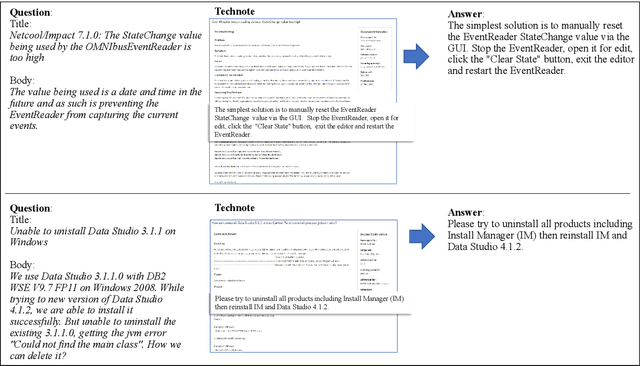


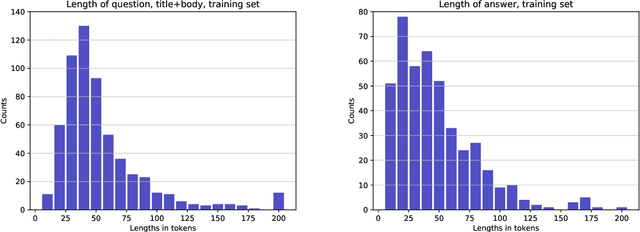
Abstract:We introduce TechQA, a domain-adaptation question answering dataset for the technical support domain. The TechQA corpus highlights two real-world issues from the automated customer support domain. First, it contains actual questions posed by users on a technical forum, rather than questions generated specifically for a competition or a task. Second, it has a real-world size -- 600 training, 310 dev, and 490 evaluation question/answer pairs -- thus reflecting the cost of creating large labeled datasets with actual data. Consequently, TechQA is meant to stimulate research in domain adaptation rather than being a resource to build QA systems from scratch. The dataset was obtained by crawling the IBM Developer and IBM DeveloperWorks forums for questions with accepted answers that appear in a published IBM Technote---a technical document that addresses a specific technical issue. We also release a collection of the 801,998 publicly available Technotes as of April 4, 2019 as a companion resource that might be used for pretraining, to learn representations of the IT domain language.
 Add to Chrome
Add to Chrome Add to Firefox
Add to Firefox Add to Edge
Add to Edge